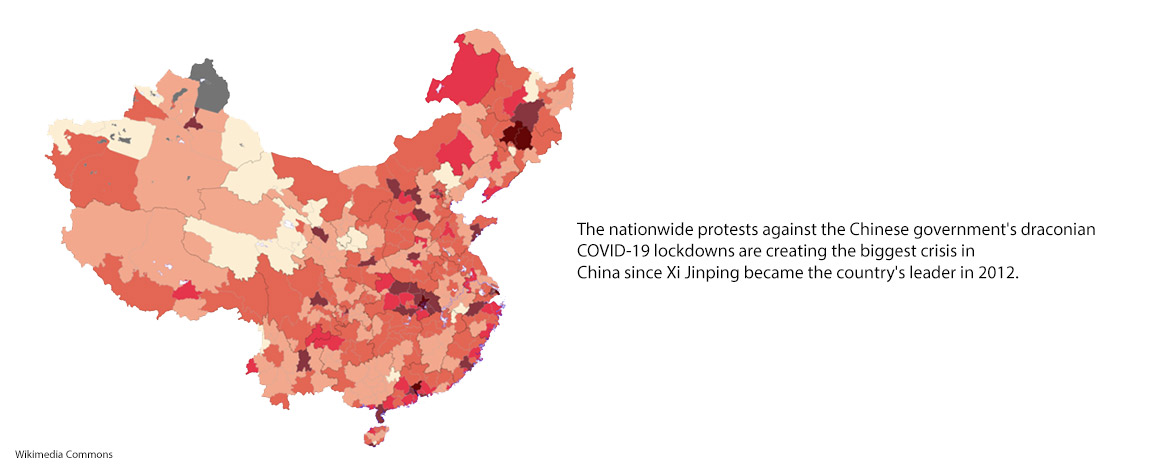Yasheng Huang, MIT Sloan Professor and MIT-China Faculty Director, argues that the recent protests, while powerful, are unlikely to shake Xi Jinping's rule. This essay was originally published here in The Boston Globe. An excerpt is featured below.
The nationwide protests against the Chinese government's draconian COVID-19 lockdowns are creating the biggest crisis in China since Xi Jinping became the country's leader in 2012. China is not short of protests, but protests are usually local and isolated. Not this time. According to CNN, COVID protests have broken out in 17 Chinese cities. Some protesters have sounded overtly anti-regime tones, chanting “Step down, Xi Jinping" and “Step down, the Communist Party." These have been incredibly brave acts of defiance against a leader who just a month ago had consolidated power at the 20th congress of China's Communist Party.
But as remarkable as these protests are, it is unlikely they will shake the staying power of the party's rule. Nor are they an existential threat to the regime or to Xi, especially as the Chinese government has begun to ease the COVID lockdowns in a move to address the central grievance of most protesters.
Consider the following. The COVID protests are the largest anti-government movement in China since the Tiananmen Square protests of 1989. But they have been significantly smaller, attracting thousands of people — unlike in 1989, when millions of people took to the streets.
In contrast, the COVID protests have been relatively modest in size despite the depth and breadth of the protesters' central grievance — the forcible confinement of hundreds of millions of people in their homes and in field hospitals. The lockdowns have been linked to suicides, miscarriages, fires, and many other instances of collateral damage — and yet in a country of 1.4 billion people, the total number of protesters is more likely in the tens of thousands, not millions.
The protests are significant for the simple fact that they have happened at all, not because of the danger they pose to the government. The Chinese state is incredibly strong. That is partly because China has installed, according to one estimate, 600 million surveillance cameras and has one of the world's densest police networks. It is also because a crucial ingredient that is required to launch a sustained mass movement is missing in China: collective action and an independent civil society.
Read the full article here.
Yasheng Huang is professor of global economics and management at MIT Sloan School of Management and author of “The Rise and the Fall of the EAST: Examination, Autocracy, Stability, and Technology in Chinese History and Today."




